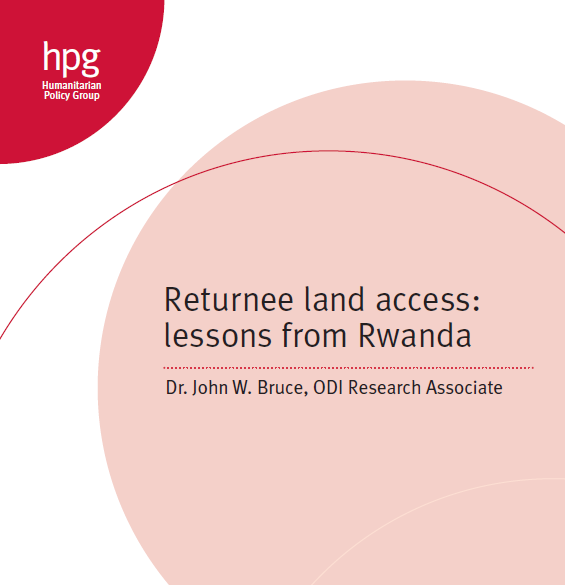Resource information
This background briefing reports on a study of land access for returnees in Rwanda, and the impacts of land access policies in the post-conflict period. It also seeks to understand better the roles international humanitarian agencies and NGOs have played, and how their performance can be improved. It is not suggested that Rwanda is typical, but rather that the centrality of land issues there has thrown up a revealing set of broader questions.
The briefing ends with the following lessons;
1. International humanitarian organisations planning for refugee returns should provide input to participants in peace negotiations on relevant experiences in returnee land access and strategies for establishing the security of landholding in the post-conflict period.
2. Programming for returnees should not be focused too narrowly on shelter, but should equally address access to land for livelihoods, including terms of access.
3. Organisations planning for refugee returns should, beginning at the peace accord stage, involve development or other NGOs with substantial expertise in land issues in post-conflict contexts.
4. A further positive initiative by international NGOs and donors is support for one or more ‘land NGOs’, and encouragement of government openness to dialogue with them and other NGOs on the development of land policy.
5. In land policy development, priority should be given to re-establishing the security of land rights, and it should be recognised that there is a need to close claims at some point, rather than allowing insecurity to continue indefinitely.
6. New land laws should be narrowly drawn to avoid conferring too broad discretion on government, especially with regard to land takings.
7. Where a continuing refugee return is anticipated, governments must recognise the need to develop nonland- based livelihood opportunities for returnees.
8. The international community should be ready to apply principles such as the right of returnees to restitution of their lands with some flexibility, recognising the legitimacy of the land provisions of peace agreements even where they contravene international standards.
To view the briefing in full please click here , or see attached pdf

